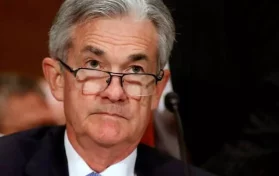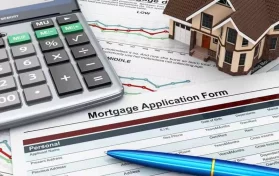
On Thursday, the housing experts at Freddie Mac revealed that the average interest rate on an American mortgage is the highest rate in a decade.
Currently, the thirty-year fixed-rate mortgages is five percent, up from last week’s rate of 4.72 percent. Compared to March 2021, the average mortgage rate was 3.04 percent.
This surge in housing interest rates doesn’t take into account the record-high cost of the home itself, which is the highest since the housing market fell during Barack Obama’s Administration.
Freddie Mac’s chief economist, Sam Khater, revealed, “This week, mortgage rates averaged five percent for the first time in over a decade. As Americans contend with record high inflation, the combination of rising mortgage rates, elevated home prices and a tight inventory are making the pursuit of homeownership the most expensive in a generation.”
Rates for other types of mortgages have also risen. Currently, the fixed rate for a fifteen year mortgage loan sit at 4.17 percent (up from 3.91 just last week). One year ago, the fixed rate for a mortgage of the same time period was 2.8 percent.
While consumers may opt to save by choosing a variable rate loan, with the Fed indicating it will raise the interest rate by several quarter and half points every meeting the Fed hosts during 2022, this could backfire on potential homeowners. The Treasury-indexed hybrid mortgage is currently 3.69 percent when last year the rate was 2.8.
The raise in rates came as no shock to economists and most consumers. At the beginning of the pandemic, interest rates were extremely low. Plus, in an effort to stem the raging inflation rate, the Federal Reserve raised its base borrowing rate by one-quarter point.
The Fed has signaled that it will hike the interest rate multiple times between now and the end of the year. Fed chair Jerome Powell said in January that the Fed would need to be “humble and nimble” when raising rates on an economy that is already teetering on the brink of collapse. However, economists believe that Powell and others at the Fed will have to raise the rates at each upcoming meeting in 2022, and Powell may need to raise those rates by more than one-quarter percent in order to stop the hemorrhaging of the American economy.
Data from the week of April 4 shows that the rising interest rates are already having an impact on consumer home buying. The Mortgage Bankers Association released data revealing that more potential homeowners are opting for an adjustable rate mortgage rather than the fixed loan of either fifteen years or thirty years.
This consumer behavior hasn’t been observed in the same manner since 2019.
Refinancing of home loans has also declined by five percent in the last week, down to pre-pandemic levels. Consumers are seeing that it simply costs more to borrow against one’s home loan, and refinancing to a lower rate simply isn’t possible at the time.
Although the housing market is expected to slow as the Fed raises interest rates, demand is still strong. The MBA revealed that loan applications for both conventional purchase and FDA loans had not decreased in the least.





